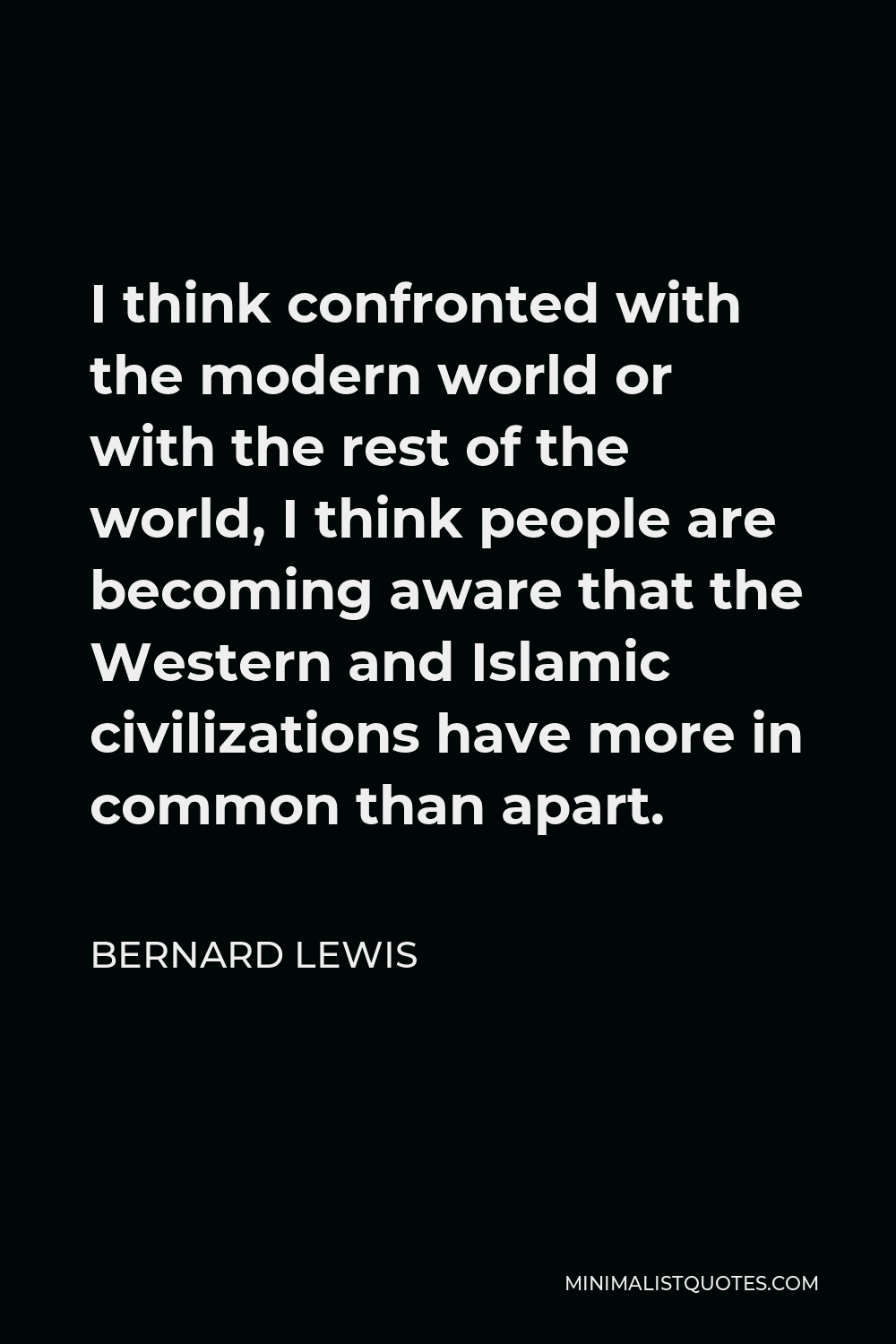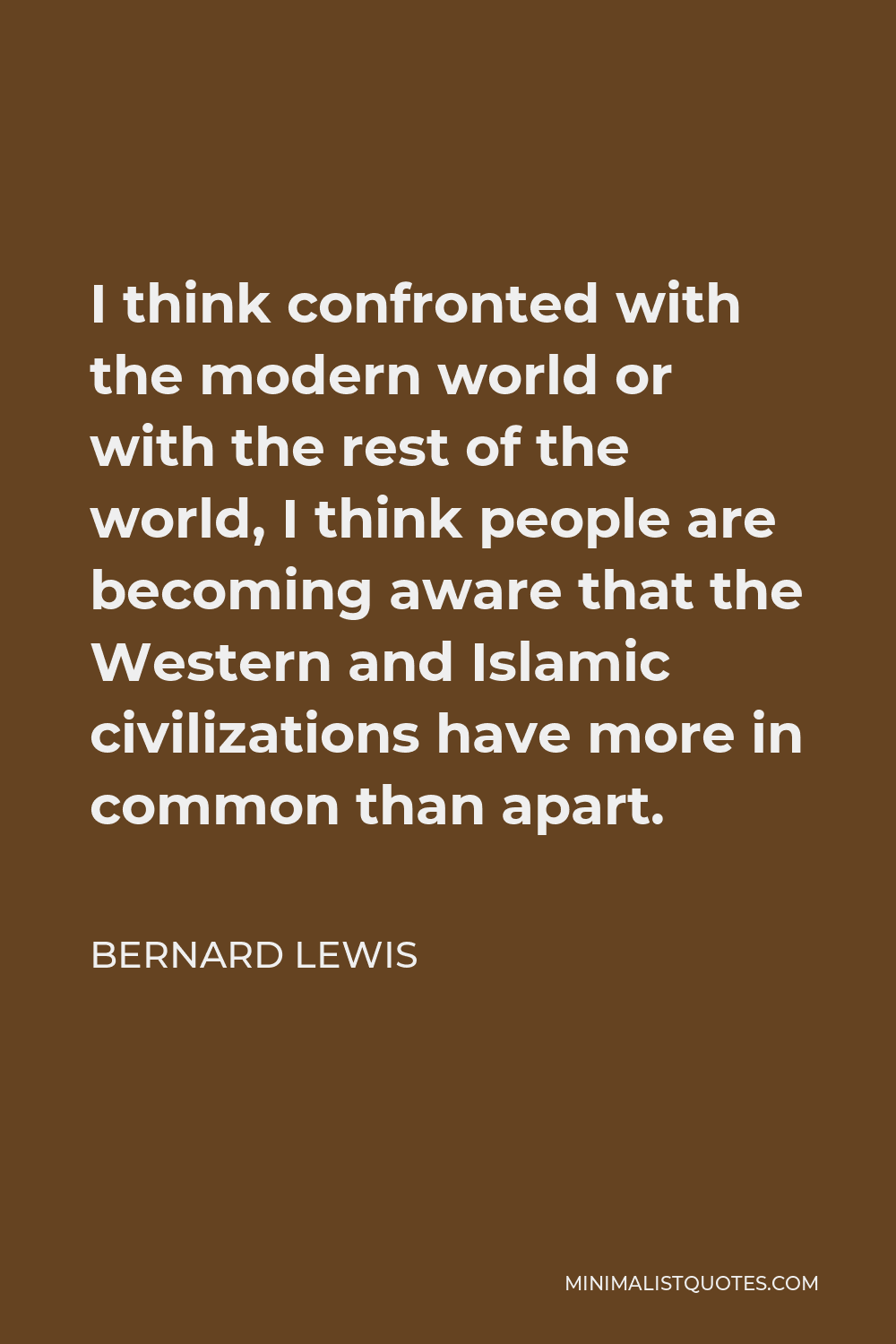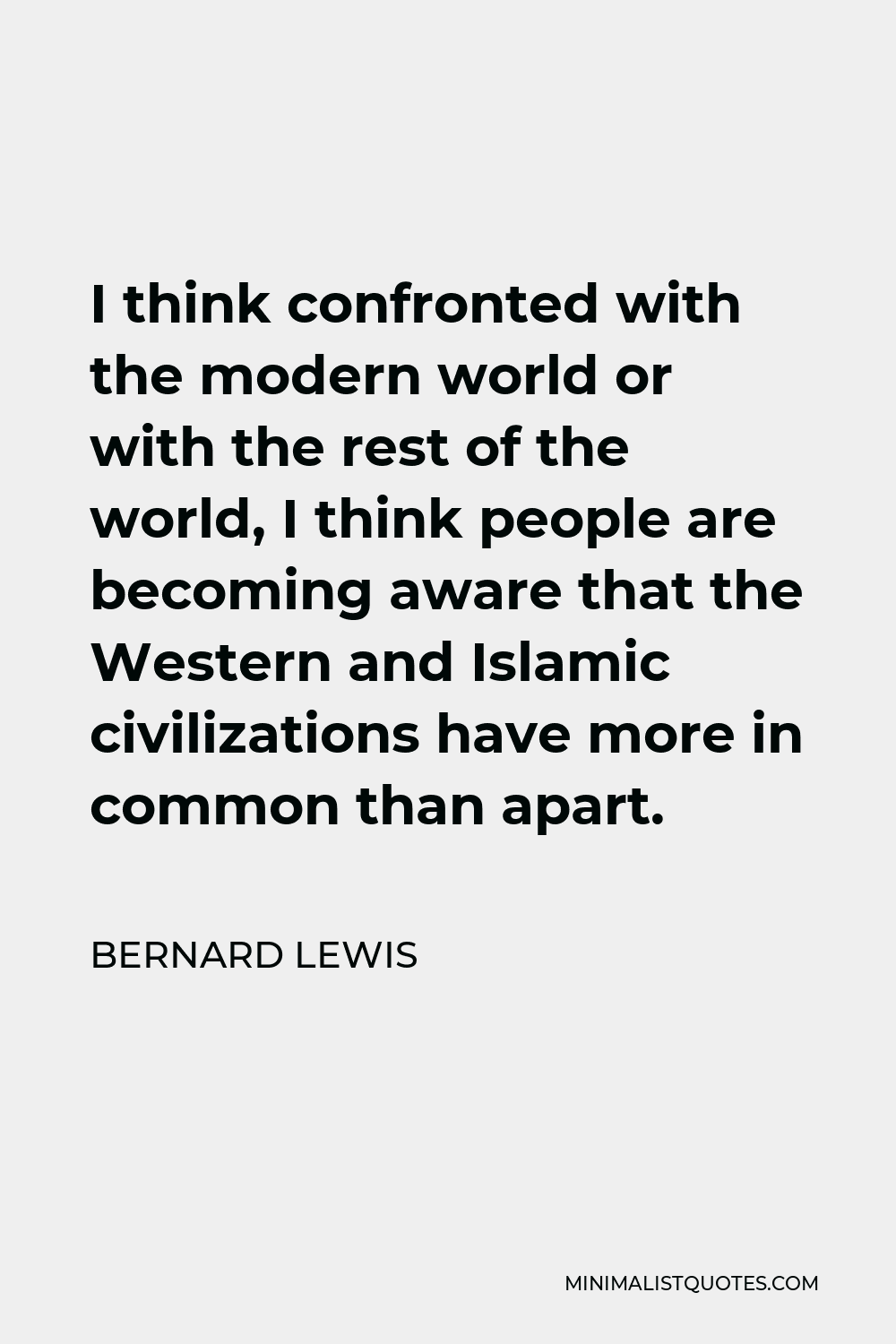To accept the story of the Arab destruction of the library of Alexandria, one must explain how it is that so dramatic an event was unmentioned and unnoticed not only in the rich historical literature of medieval Islam.
BERNARD LEWISI think confronted with the modern world or with the rest of the world, I think people are becoming aware that the Western and Islamic civilizations have more in common than apart.
More Bernard Lewis Quotes
-





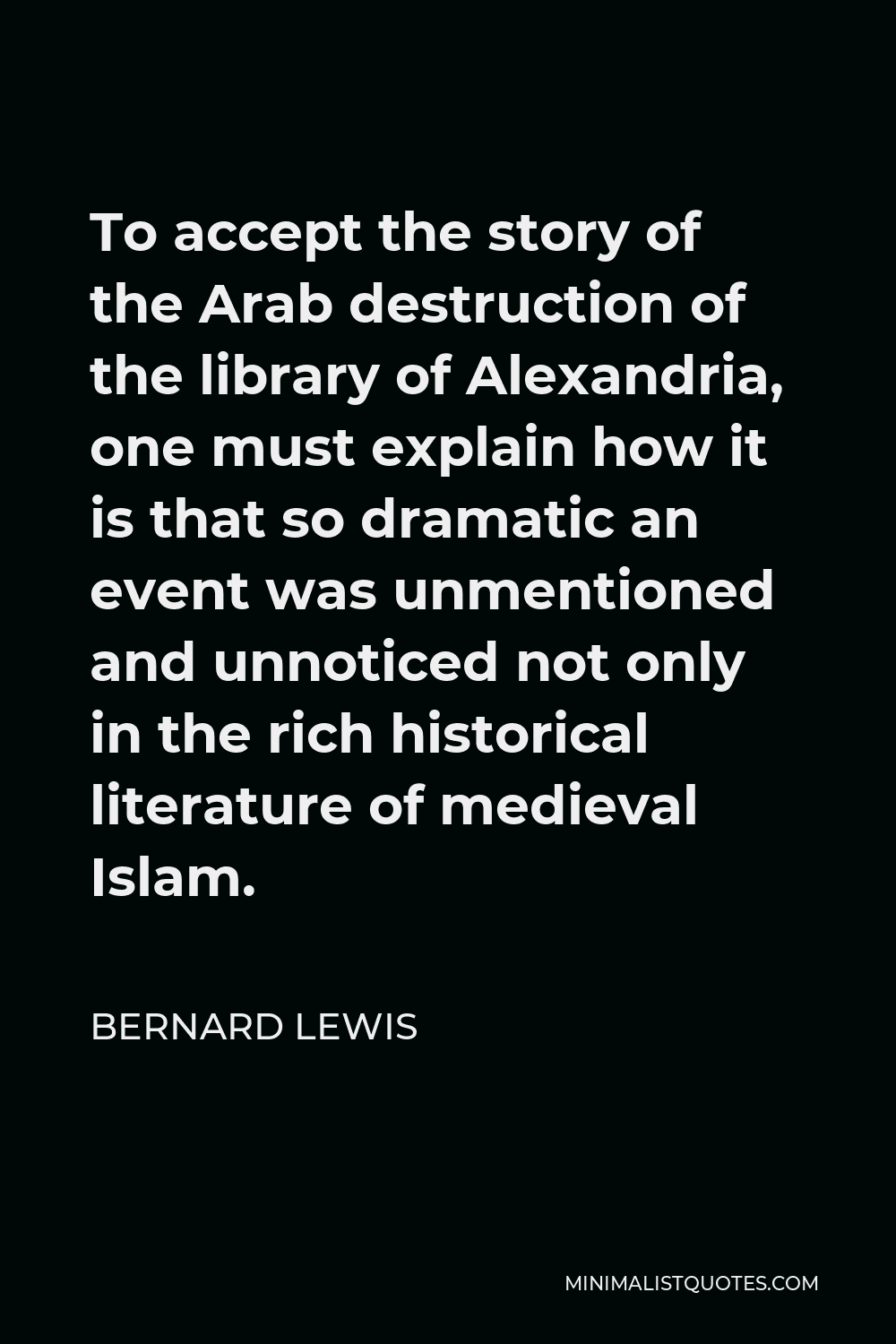
-






If the conflict is about the size of Israel, then long and difficult negotiations can eventually resolve the problem. But if the conflict is about the existence of Israel, then serious negotiation is impossible.
BERNARD LEWIS -





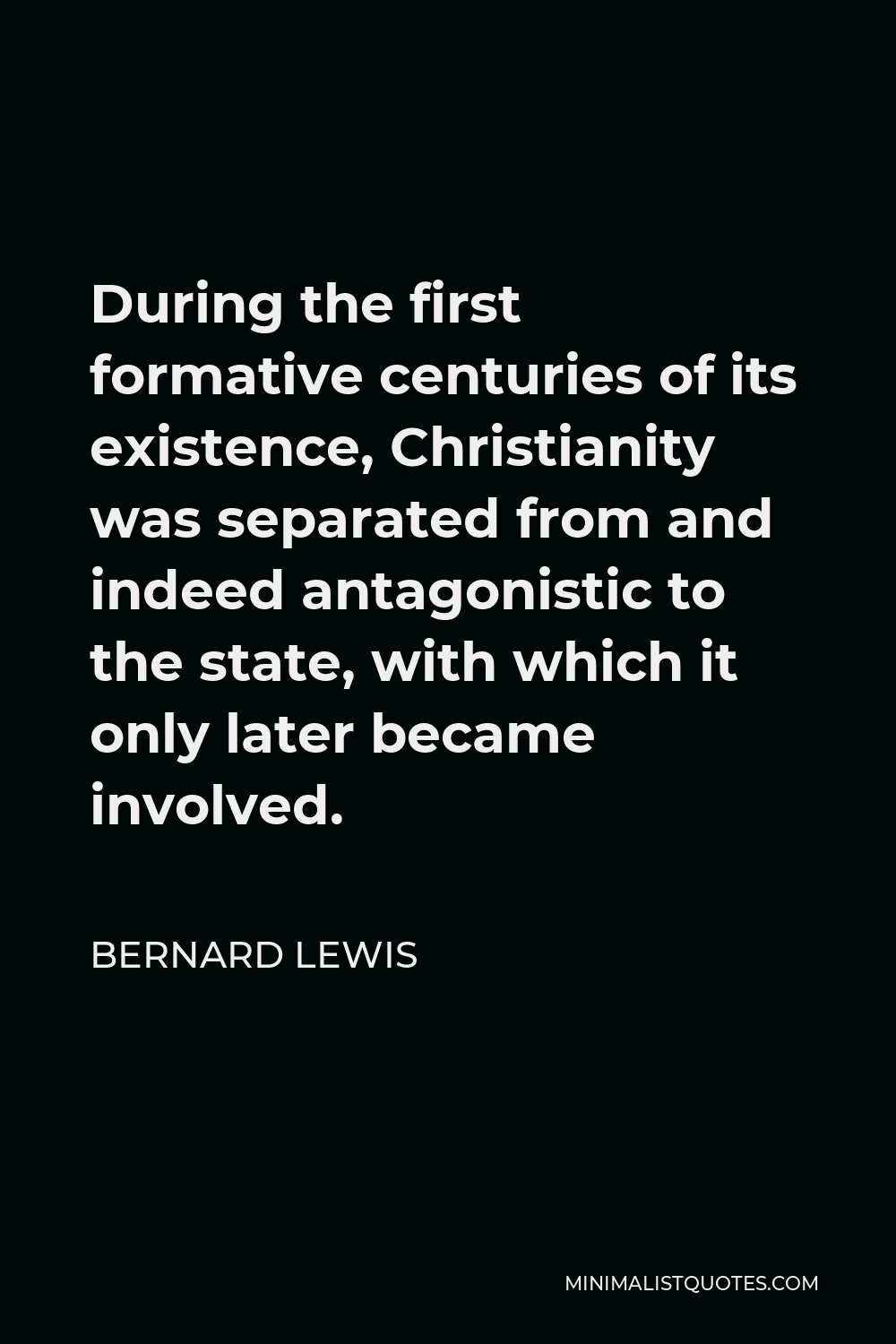
During the first formative centuries of its existence, Christianity was separated from and indeed antagonistic to the state, with which it only later became involved.
BERNARD LEWIS -





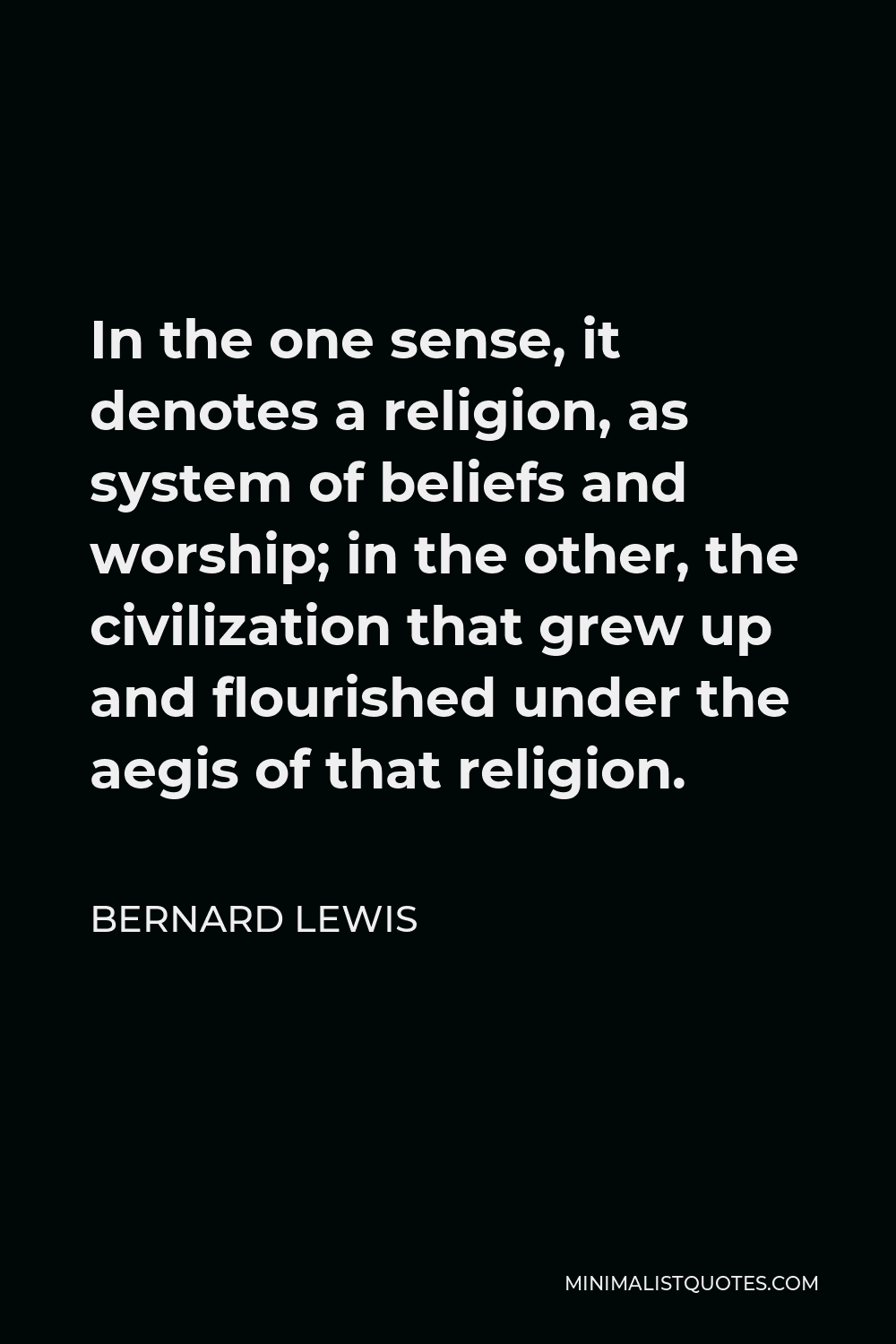
In the one sense, it denotes a religion, as system of beliefs and worship; in the other, the civilization that grew up and flourished under the aegis of that religion.
BERNARD LEWIS -





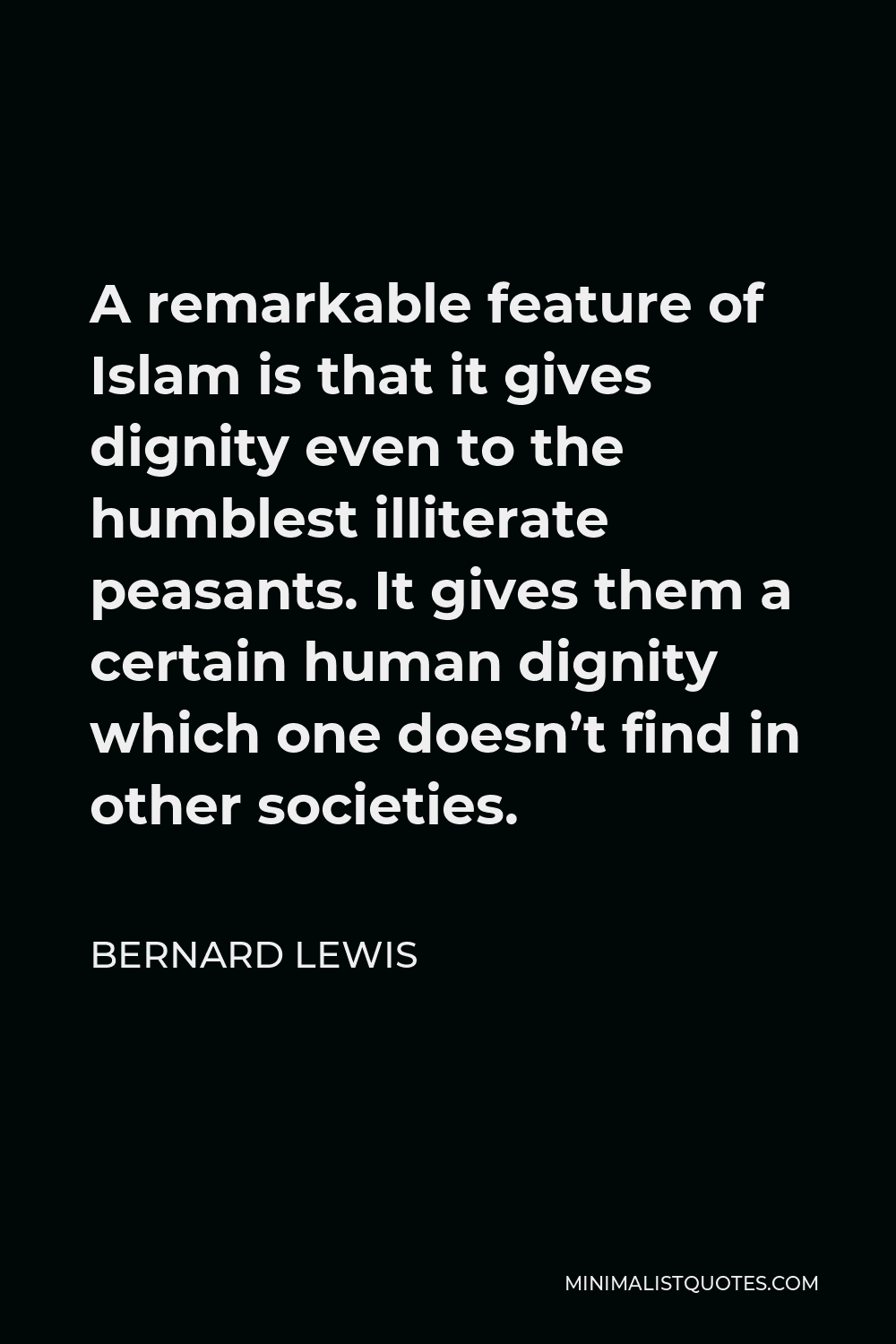
A remarkable feature of Islam is that it gives dignity even to the humblest illiterate peasants. It gives them a certain human dignity which one doesn’t find in other societies.
BERNARD LEWIS -





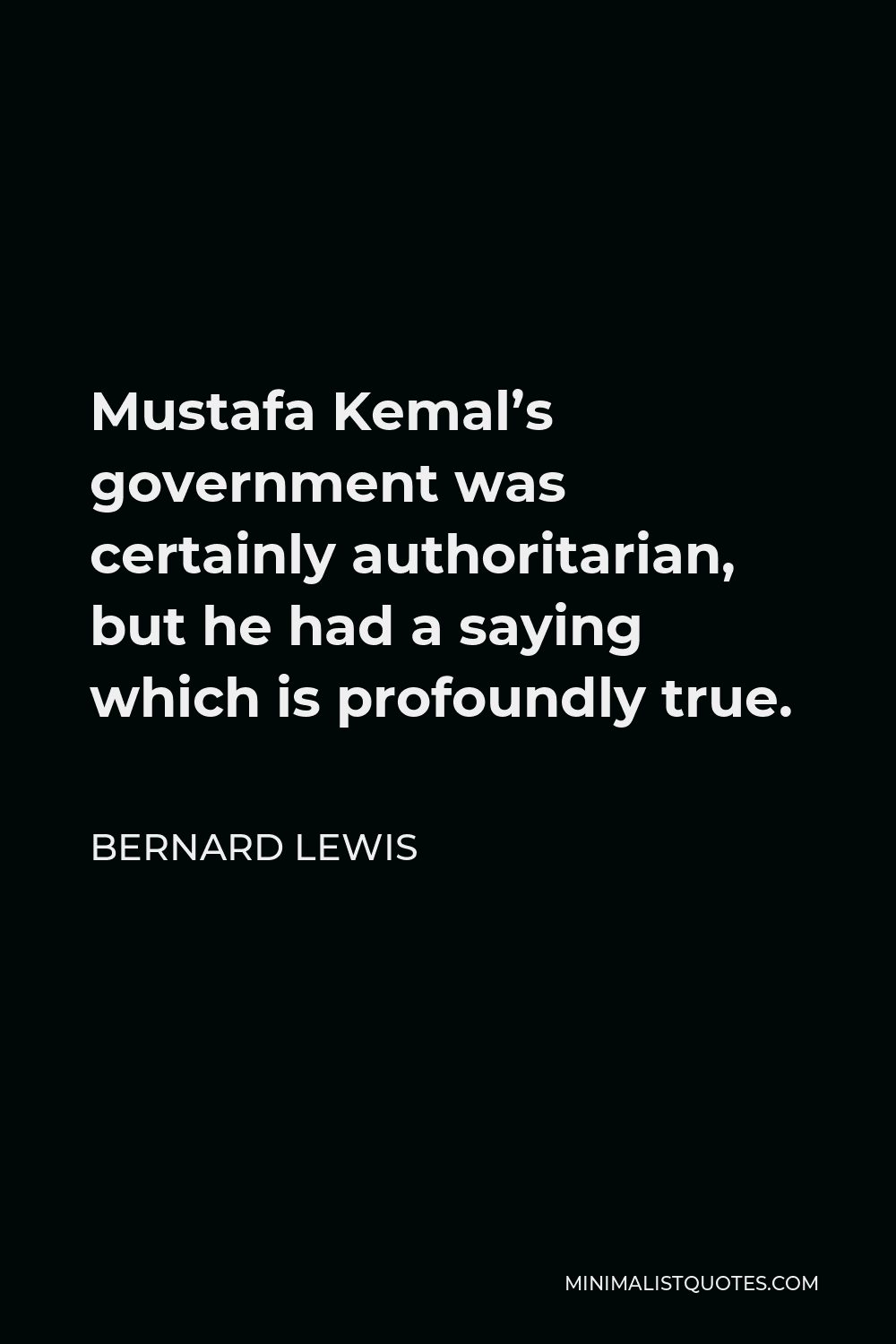
Mustafa Kemal’s government was certainly authoritarian, but he had a saying which is profoundly true.
BERNARD LEWIS -





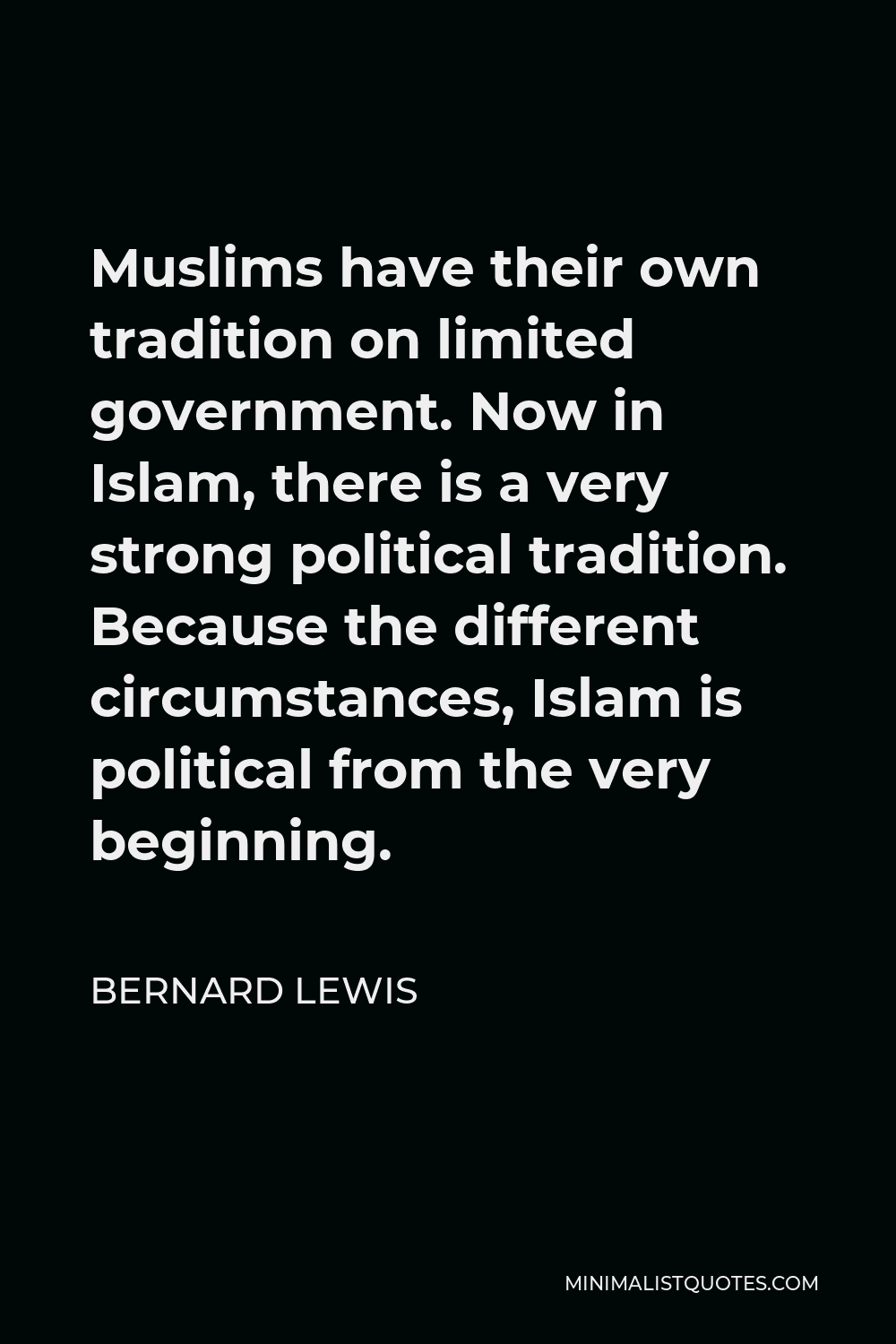
Muslims have their own tradition on limited government. Now in Islam, there is a very strong political tradition. Because the different circumstances, Islam is political from the very beginning.
BERNARD LEWIS -





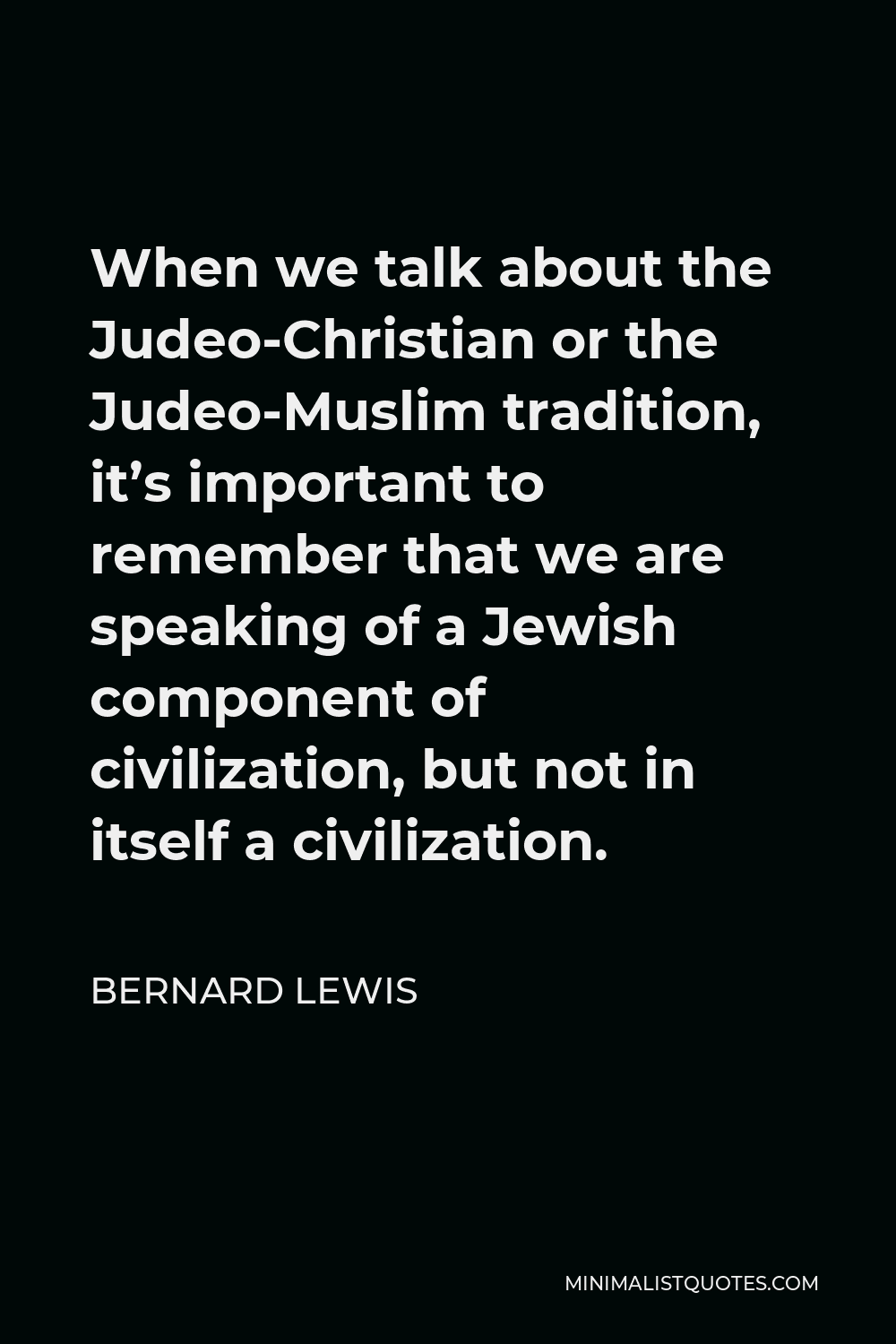
When we talk about the Judeo-Christian or the Judeo-Muslim tradition, it’s important to remember that we are speaking of a Jewish component of civilization, but not in itself a civilization.
BERNARD LEWIS -





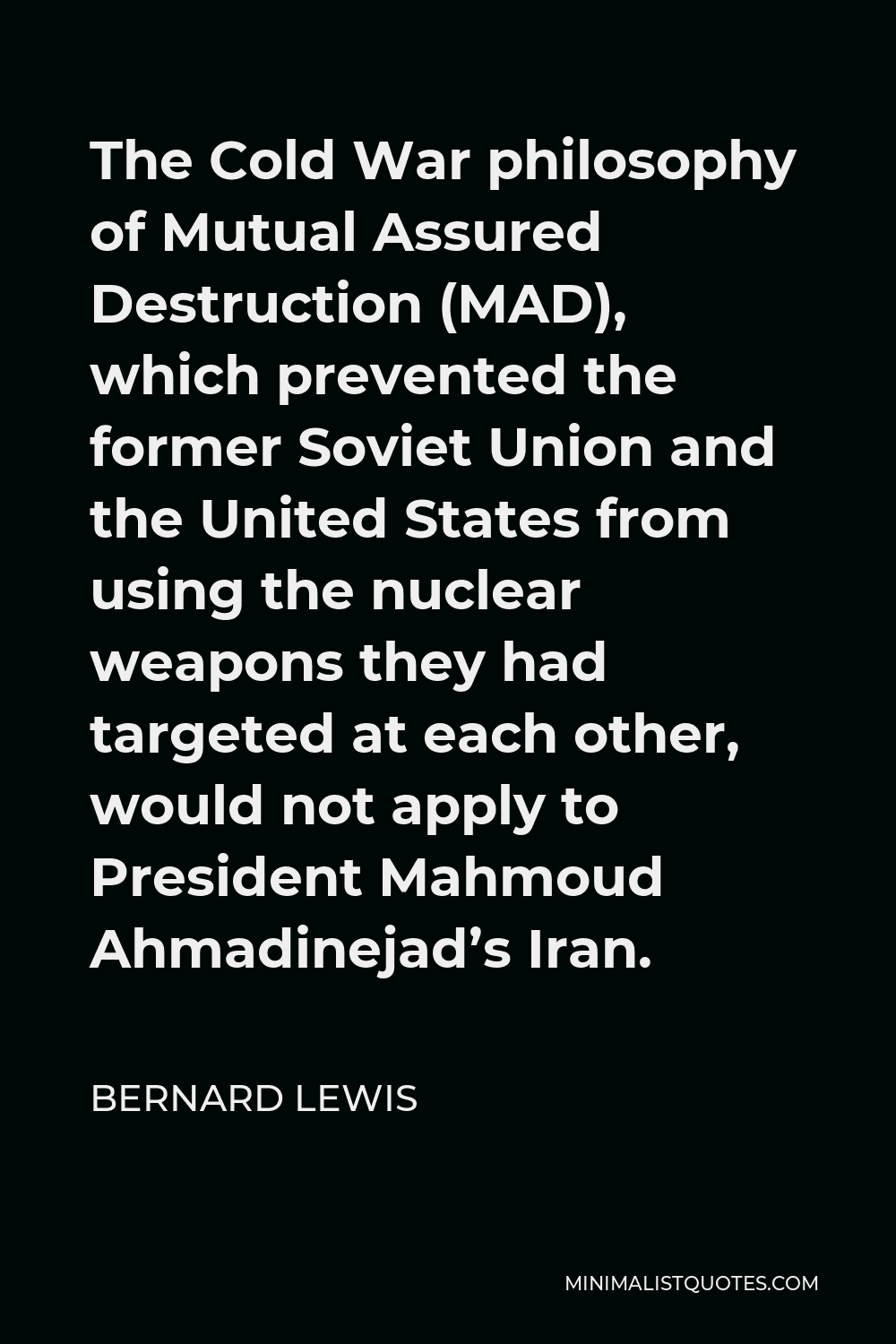
The Cold War philosophy of Mutual Assured Destruction (MAD), which prevented the former Soviet Union and the United States from using the nuclear weapons they had targeted at each other, would not apply to President Mahmoud Ahmadinejad’s Iran.
BERNARD LEWIS -





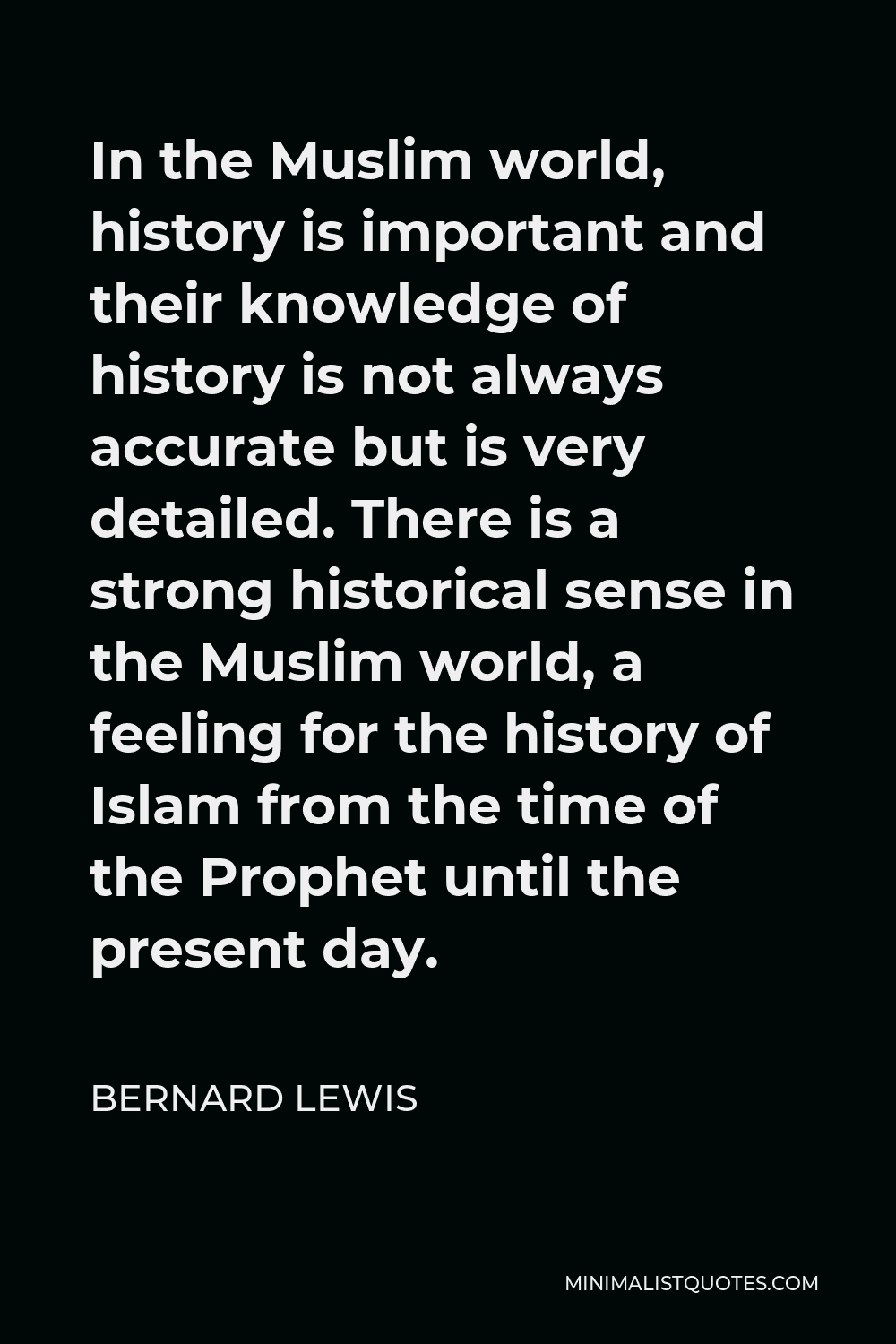
In the Muslim world, history is important and their knowledge of history is not always accurate but is very detailed. There is a strong historical sense in the Muslim world, a feeling for the history of Islam from the time of the Prophet until the present day.
BERNARD LEWIS -





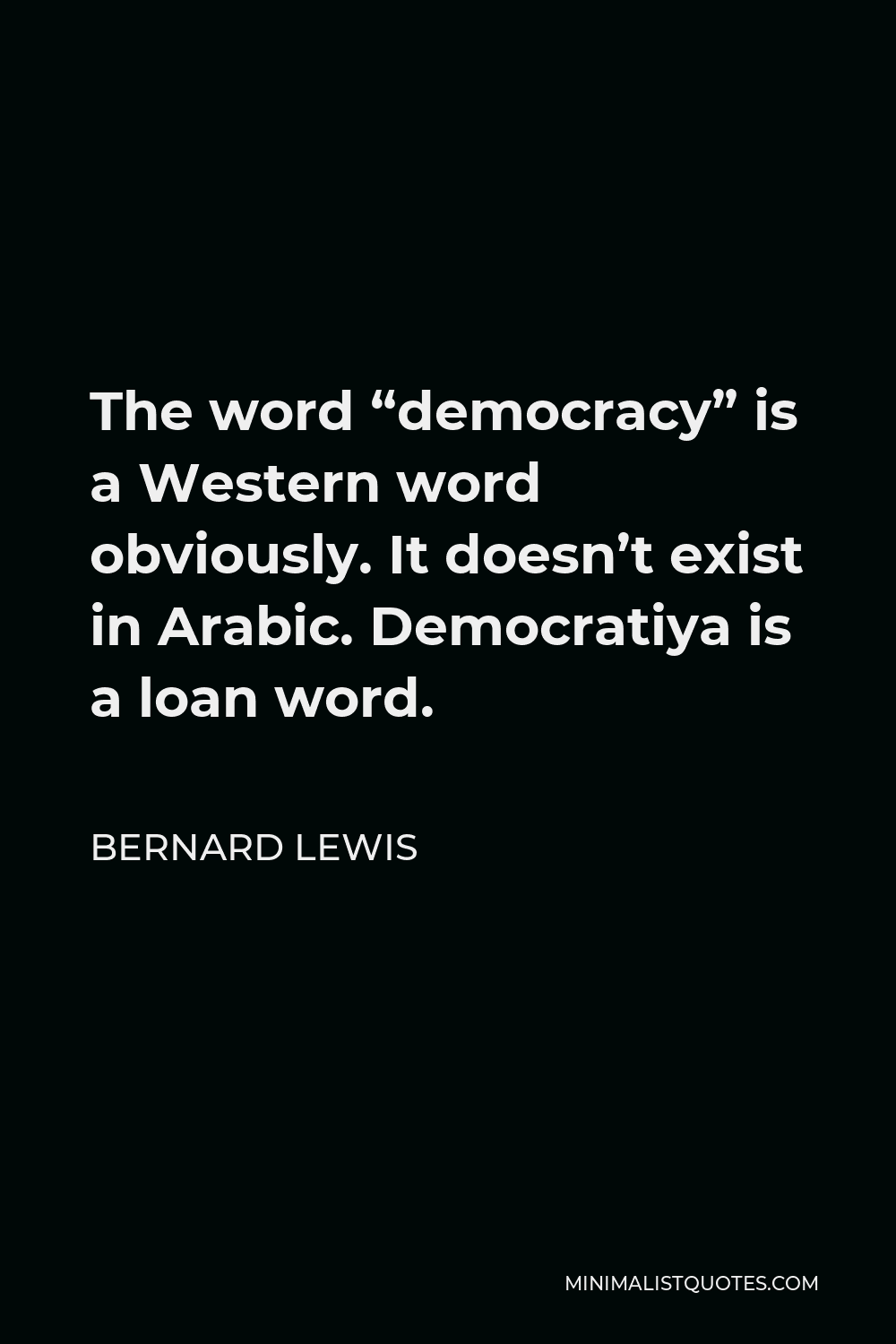
The word “democracy” is a Western word obviously. It doesn’t exist in Arabic. Democratiya is a loan word.
BERNARD LEWIS -





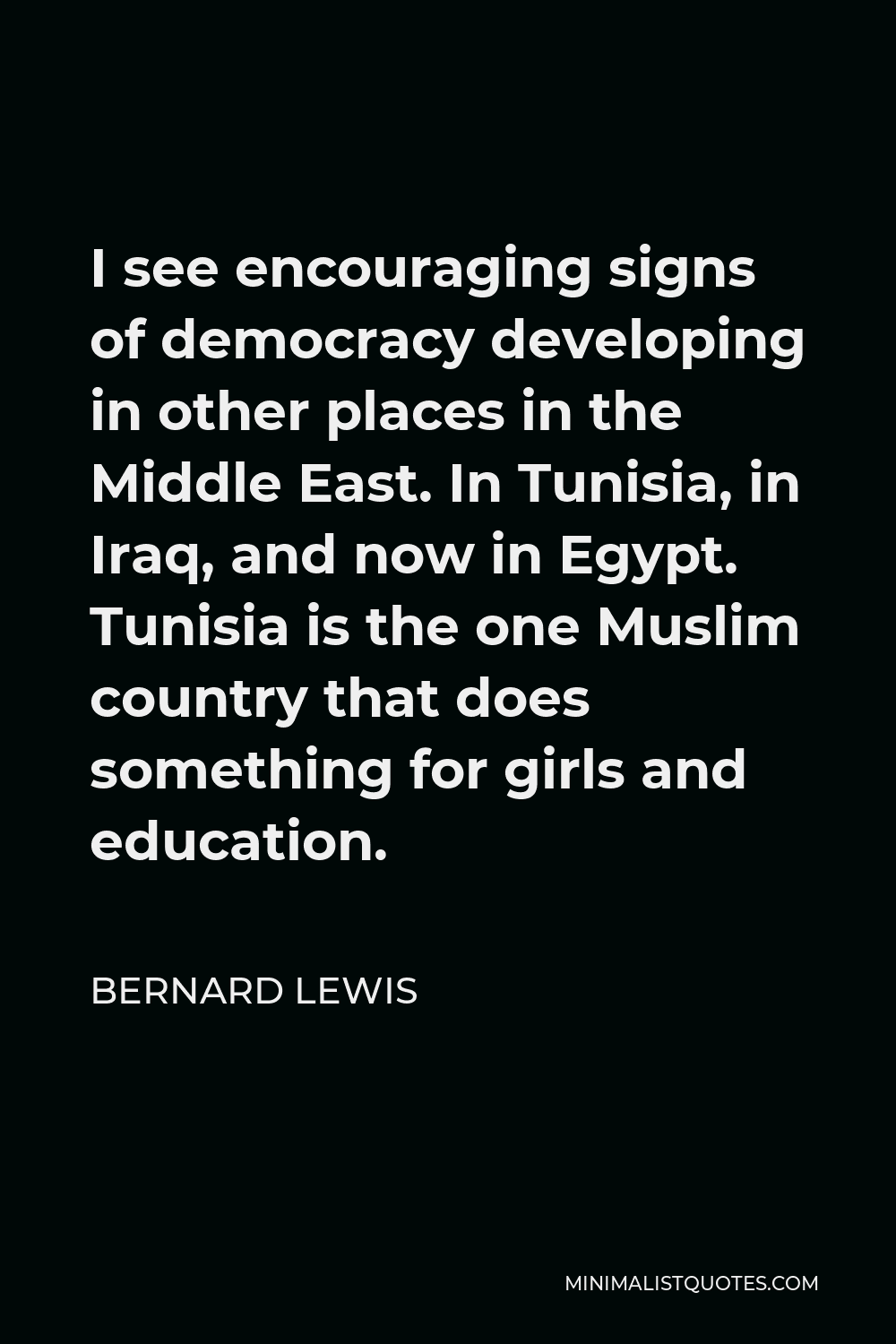
I see encouraging signs of democracy developing in other places in the Middle East. In Tunisia, in Iraq, and now in Egypt. Tunisia is the one Muslim country that does something for girls and education.
BERNARD LEWIS -





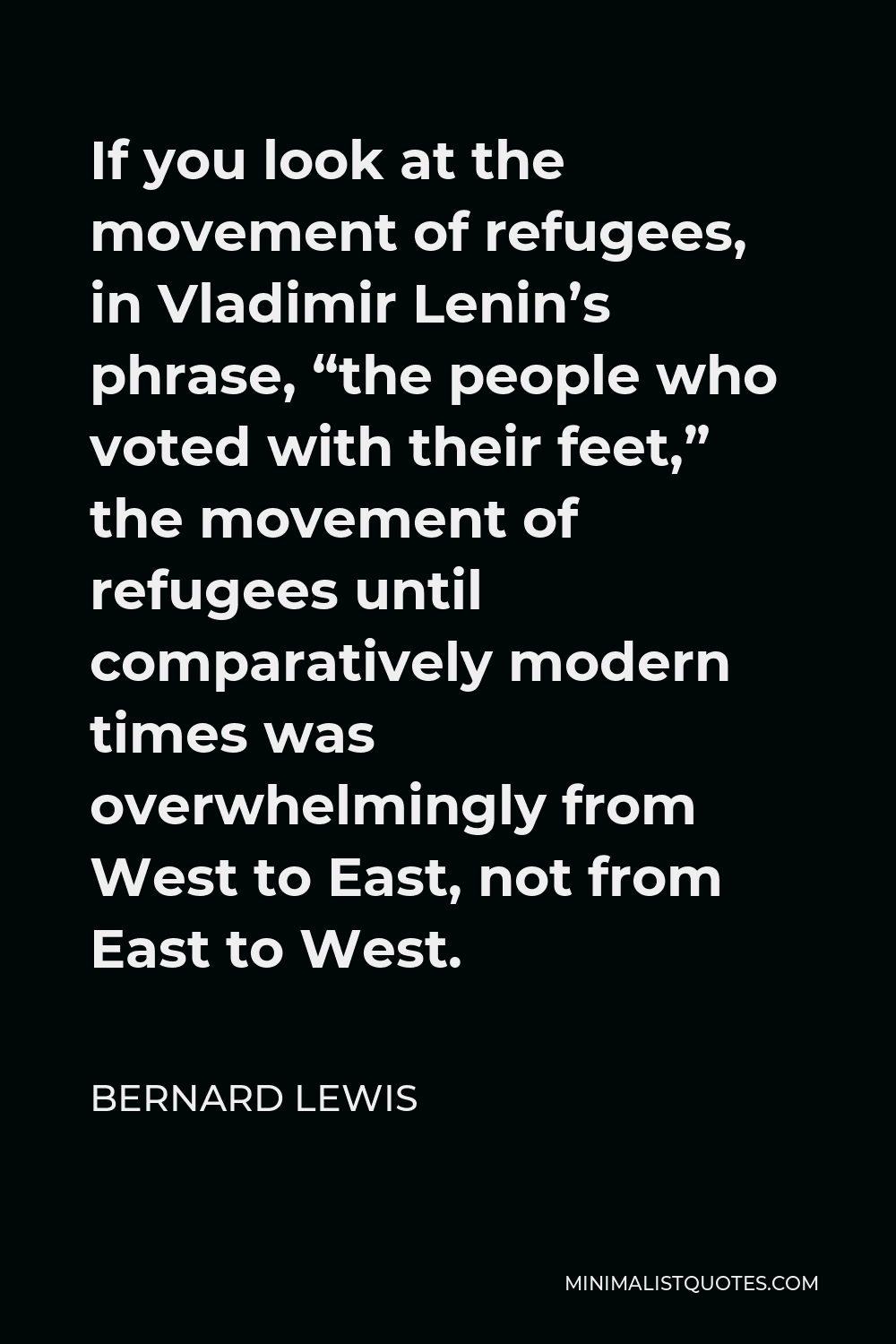
If you look at the movement of refugees, in Vladimir Lenin’s phrase, “the people who voted with their feet,” the movement of refugees until comparatively modern times was overwhelmingly from West to East, not from East to West.
BERNARD LEWIS -





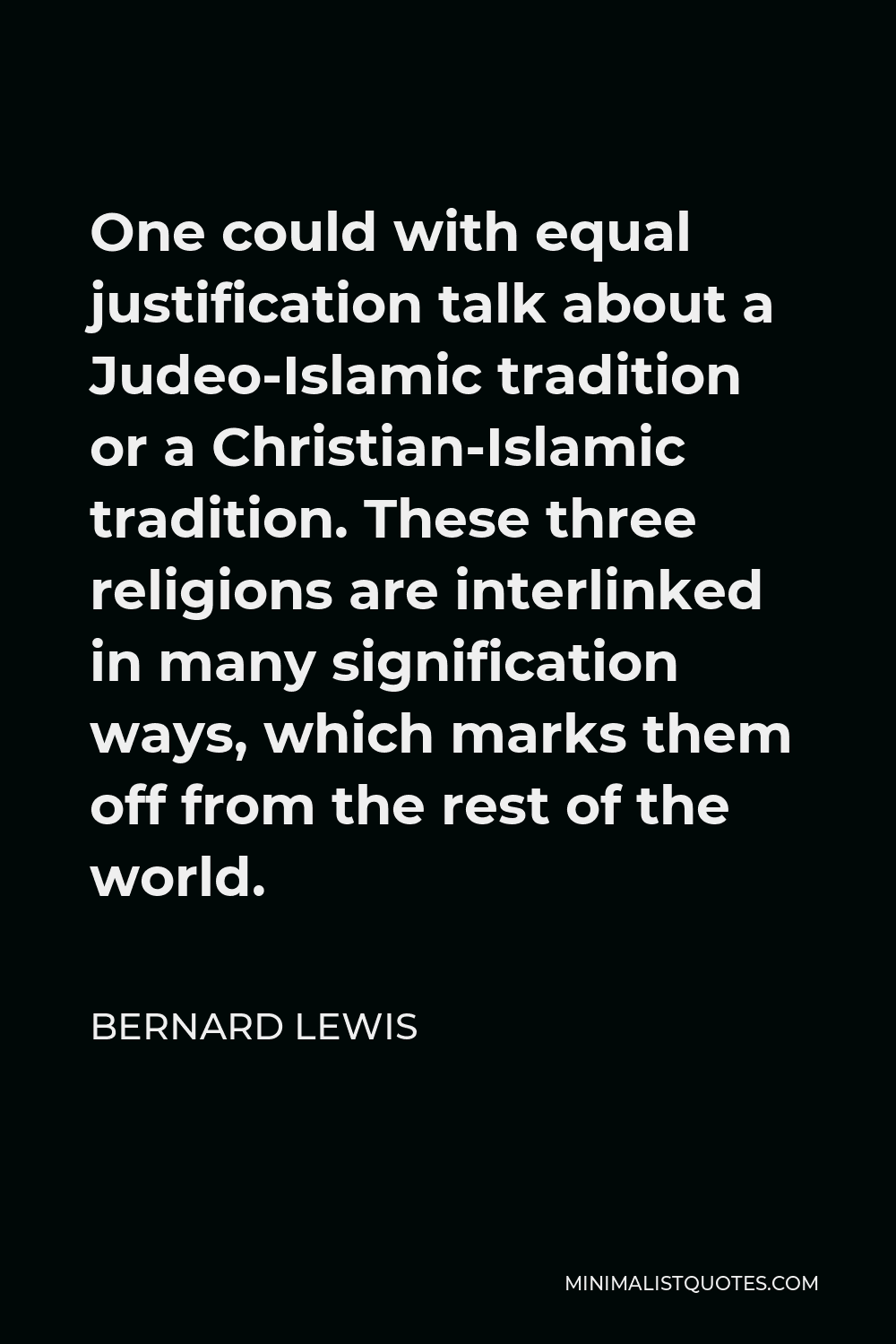
One could with equal justification talk about a Judeo-Islamic tradition or a Christian-Islamic tradition. These three religions are interlinked in many signification ways, which marks them off from the rest of the world.
BERNARD LEWIS -





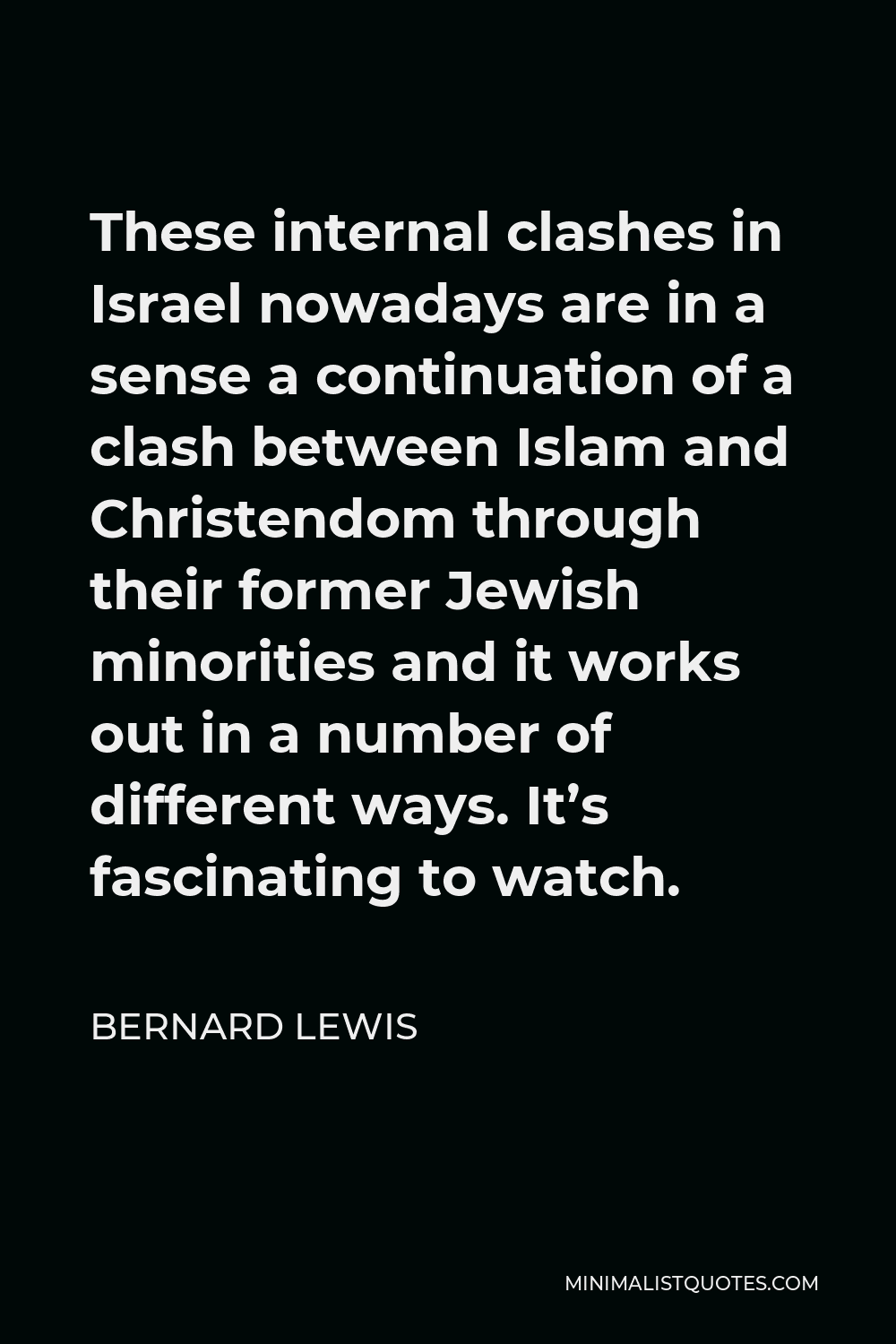
These internal clashes in Israel nowadays are in a sense a continuation of a clash between Islam and Christendom through their former Jewish minorities and it works out in a number of different ways. It’s fascinating to watch.
BERNARD LEWIS -





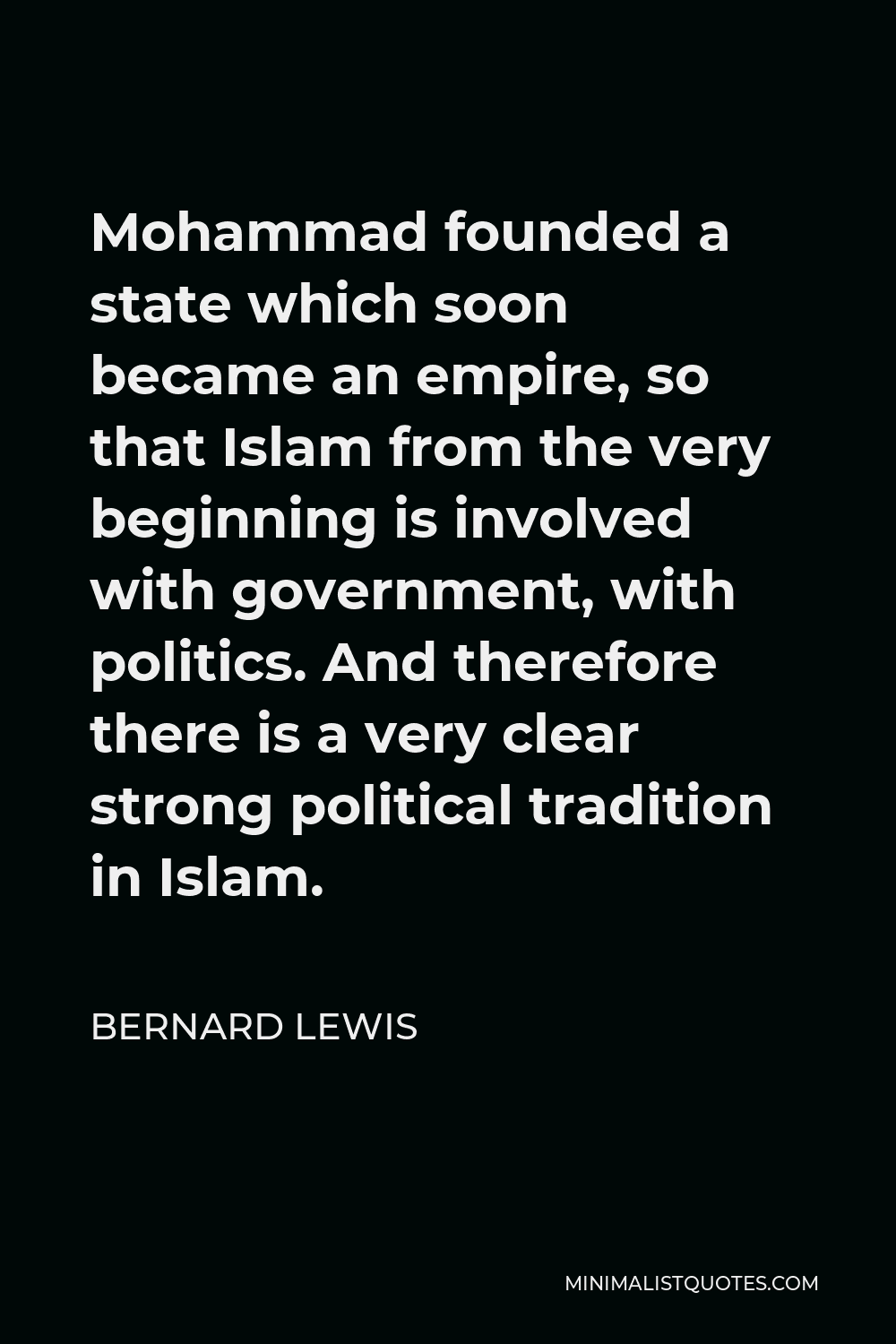
Mohammad founded a state which soon became an empire, so that Islam from the very beginning is involved with government, with politics. And therefore there is a very clear strong political tradition in Islam.
BERNARD LEWIS

